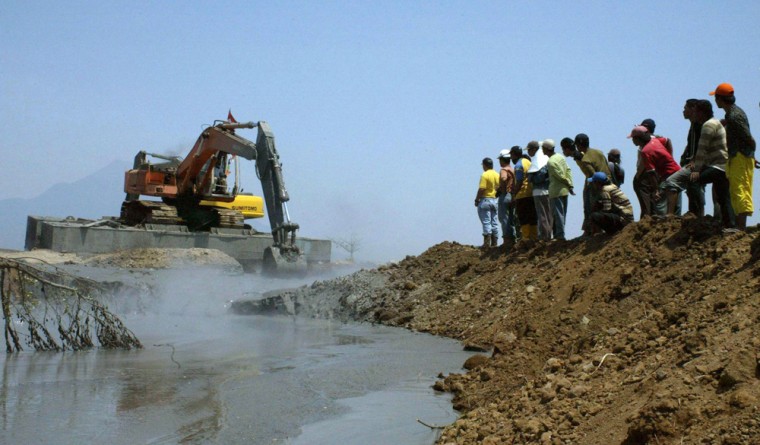Foul-smelling mud oozing from an exploratory oil well in Indonesia has forced the partial closure of key toll road for the fifth time this month, officials said on Wednesday.
The mudflow is part of an unfolding environmental disaster in East Java province and there appears few signs of a resolution soon.
Authorities and well operator PT Lapindo Brantas have been struggling since late May to plug the mud that has displaced more than 10,000 people from their homes.
A 3-mile section of the toll road that connects Indonesia’s second-largest city, Surabaya, to its southern industrial suburbs had to be shut, said Joko Suprapto, an assistant operator at the East Java branch of PT Jasa Marga, the state firm administering toll roads in Indonesia.
Bachriansyah, the head operator of the tollroad, said the pools could endanger motorists. But he said his firm had no plans to take legal action against well operator PT Lapindo Brantas despite falling revenues.
The highway is the main transport artery for goods from industrial areas south of East Java’s provincial capital.
The noxious mud gives off fumes that have made people ill and caused respiratory problems.
The economic cost has also been mounting with swathes of land in four villages and many shrimp ponds engulfed dotting coastal Sidoarjo regency, famous in Indonesia for its shrimp crackers.
An oil industry watchdog official has said the mudflow could have been triggered by a crack at about 6,000 feet in the Banjar Panji-1 exploration well, operated by Indonesia’s Lapindo Brantas.
East Java governor Imam Utomo told reporters plugging the mudflow could take until end of the year and the rainy season starting in October could hamper efforts.
Several attempts to stem the flow have failed and it appears an option of channeling the mud to nearby rivers and the sea has grown more likely.
Lapindo is a unit of PT Energi Mega Persada, partly owned by the Bakrie Group, which is controlled by the family of Indonesia’s chief social welfare minister Aburizal Bakrie.
Australia’s Santos Ltd., which has said it is insured against the problem, has an 18 percent interest, while Indonesia’s largest listed energy firm, PT Medco Energi International Tbk, holds the remaining 32 percent.
